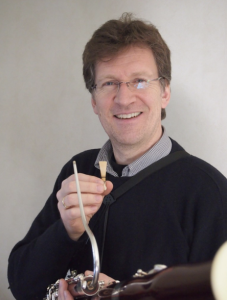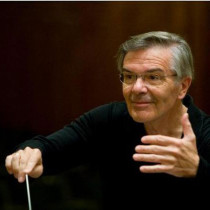 – Making mistakes is normal.
– Making mistakes is normal.
– You are not as important as you think.
– Ignore the failures of others, do it right yourself.
– Center your answers around solutions, not problems.
– Don’t chase convenience, do the difficult work readily.
– Leave behind what does not work.
– Relieve stress. Tell people: No problem, we fix this! And do it.
– Make sure your words match your actions.
– Be generous, this makes beautiful.
– Don’t think you know how others should live. You don’t.
– Failing is part of life, not a desaster.
– Critizise procedures, not people.
– Fulfill what you announced to fulfill. Deliver on your promise.
– Remember others are under pressure and need someone that takes the pressure off.
– Leave the room cleaner than you found it.
– Don’t look for applause. Look for integrity.
– It’s not about you. It’s about what life teaches you.
– Be commited. No cop out.
– You never know why someone acts the way they do. Focus on yourself.
– Don’t boss others around, instead pick the litter from the floor yourself and discard it.
– Withstand looking the other way when it’s important. Look at yourself.
What would your notes to yourself look like?
Much love,
Anselma
 A colleague helping out in our company wrote, she wishes much success for all the upcoming new creative projects in 2026 but she does not like the word success, she means joy, recognition and a positive resonance with others.
A colleague helping out in our company wrote, she wishes much success for all the upcoming new creative projects in 2026 but she does not like the word success, she means joy, recognition and a positive resonance with others. The European basic idea that all state systems are based on is rooted in giving support. I was never aware of this fact – until the day my orchestra made a concert tour to India. As artists, we resided in luxurious hotels, with huge bedrooms and bathrooms all in marble. I had never been to more elegant und exquisite accommodations than in India. We were driving around in air-conditioned busses and had all the conveniences a person could think of.
The European basic idea that all state systems are based on is rooted in giving support. I was never aware of this fact – until the day my orchestra made a concert tour to India. As artists, we resided in luxurious hotels, with huge bedrooms and bathrooms all in marble. I had never been to more elegant und exquisite accommodations than in India. We were driving around in air-conditioned busses and had all the conveniences a person could think of. Nikolaus Maler is principal bassoonist at the Rheinische Philharmonie Koblenz and holds a position as professor for bassoon at the Musikhochschule Nürnberg, Germany. His YouTube Channel „Fagottmusik“ is reaching a large fan community. Prof. Maler is known for his exceptionally wide repertoire, including contemporary rarities. Quite a few pieces have been dedicated to him in the past and he wholeheartedly supports young musicians and engages in educating the ambitious bassoon youth.
Nikolaus Maler is principal bassoonist at the Rheinische Philharmonie Koblenz and holds a position as professor for bassoon at the Musikhochschule Nürnberg, Germany. His YouTube Channel „Fagottmusik“ is reaching a large fan community. Prof. Maler is known for his exceptionally wide repertoire, including contemporary rarities. Quite a few pieces have been dedicated to him in the past and he wholeheartedly supports young musicians and engages in educating the ambitious bassoon youth. The other day I read about a guy, who gave his employees T-Shirts that say TGIM.
The other day I read about a guy, who gave his employees T-Shirts that say TGIM. Dag Jensen is a world-famous bassoonist, a very unique soloist and recognised virtuoso. Born in Norway, he started his career early on as an orchestra player. He won the ARD competition twice and quickly established himself as a celebrated chamber musician and brilliant bassoon soloist, playing with eminent orchestras and high-ranking conductors of our time. Through his recordings he not only introduced famous works in new elegance, he also inspires his world-wide audience with new and rare repertoire. Dag Jensen shapes new standards in the bassoon world with his artistic oeuvre and holds the position of bassoon professor on the Academy of Music Oslo, Norway, and the Musikhochschule München, Germany.
Dag Jensen is a world-famous bassoonist, a very unique soloist and recognised virtuoso. Born in Norway, he started his career early on as an orchestra player. He won the ARD competition twice and quickly established himself as a celebrated chamber musician and brilliant bassoon soloist, playing with eminent orchestras and high-ranking conductors of our time. Through his recordings he not only introduced famous works in new elegance, he also inspires his world-wide audience with new and rare repertoire. Dag Jensen shapes new standards in the bassoon world with his artistic oeuvre and holds the position of bassoon professor on the Academy of Music Oslo, Norway, and the Musikhochschule München, Germany. Fall is coming and with it some new opportunities.
Fall is coming and with it some new opportunities. When I was in my teens, friends introduced me to a lady. I admired her for her wisdom. She became my beloved mentor. From an early age on, I liked to pick some heroes and tried to learn from these people. Instead of reading fantasy novels I bought biographies and studied how people with outstanding character and strength navigated their personal challenges.
When I was in my teens, friends introduced me to a lady. I admired her for her wisdom. She became my beloved mentor. From an early age on, I liked to pick some heroes and tried to learn from these people. Instead of reading fantasy novels I bought biographies and studied how people with outstanding character and strength navigated their personal challenges. When I was a student, we had an audition training with a timpanist. He patiently listened to our bassoon Mozarts and excerpts, thought about what to say and finally told us:
When I was a student, we had an audition training with a timpanist. He patiently listened to our bassoon Mozarts and excerpts, thought about what to say and finally told us: Sometimes we make wrong deductions.
Sometimes we make wrong deductions.

